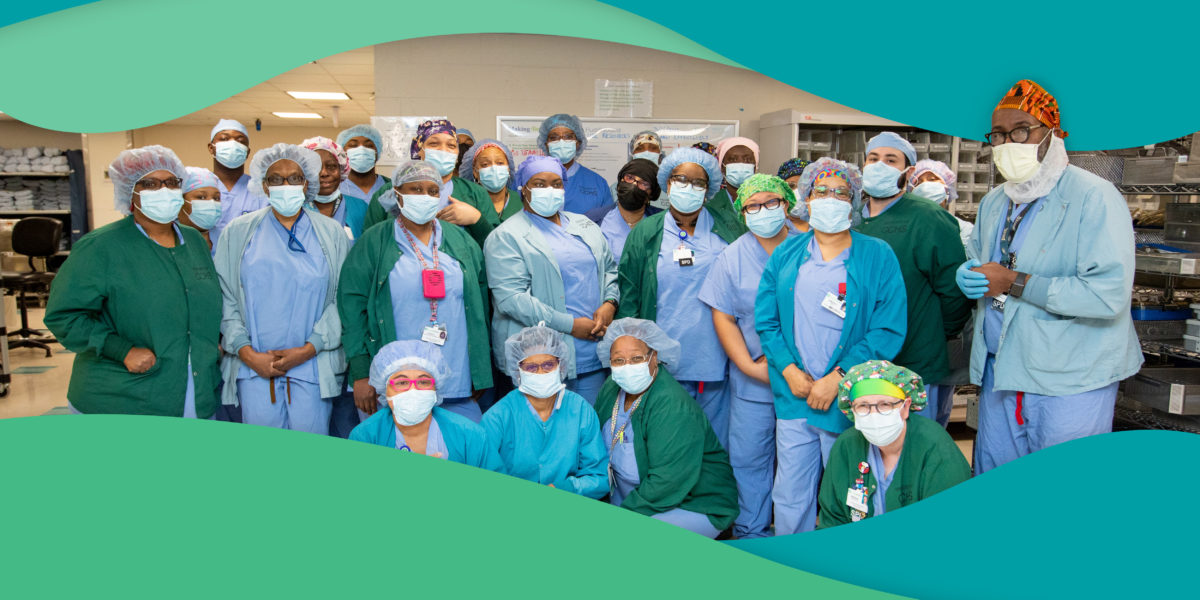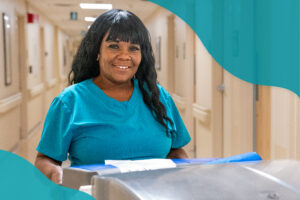The Sterile Processing Team
98 caregivers on 3 campuses sterilize 32,000 trays and instruments annually.
It’s easy to pass without notice. But just beyond a set of beige doors in the basement of Christiana Hospital, the Sterile Processing Department hums with activity.
Machines chug through disinfection cycles, cleaning and decontaminating hundreds of scalpels, clamps and other tools used in surgery earlier in the day. Nearby, technicians assemble trays of surgical tools to be sterilized and stored until their next use.
It’s a cycle that repeats itself around the clock at the Newark, Wilmington and Cecil County campuses. It’s the Sterile Processing Department, a team of 98 specially trained caregivers responsible for making sure each surgical instrument in the system is properly disinfected, sterilized, processed and stored.
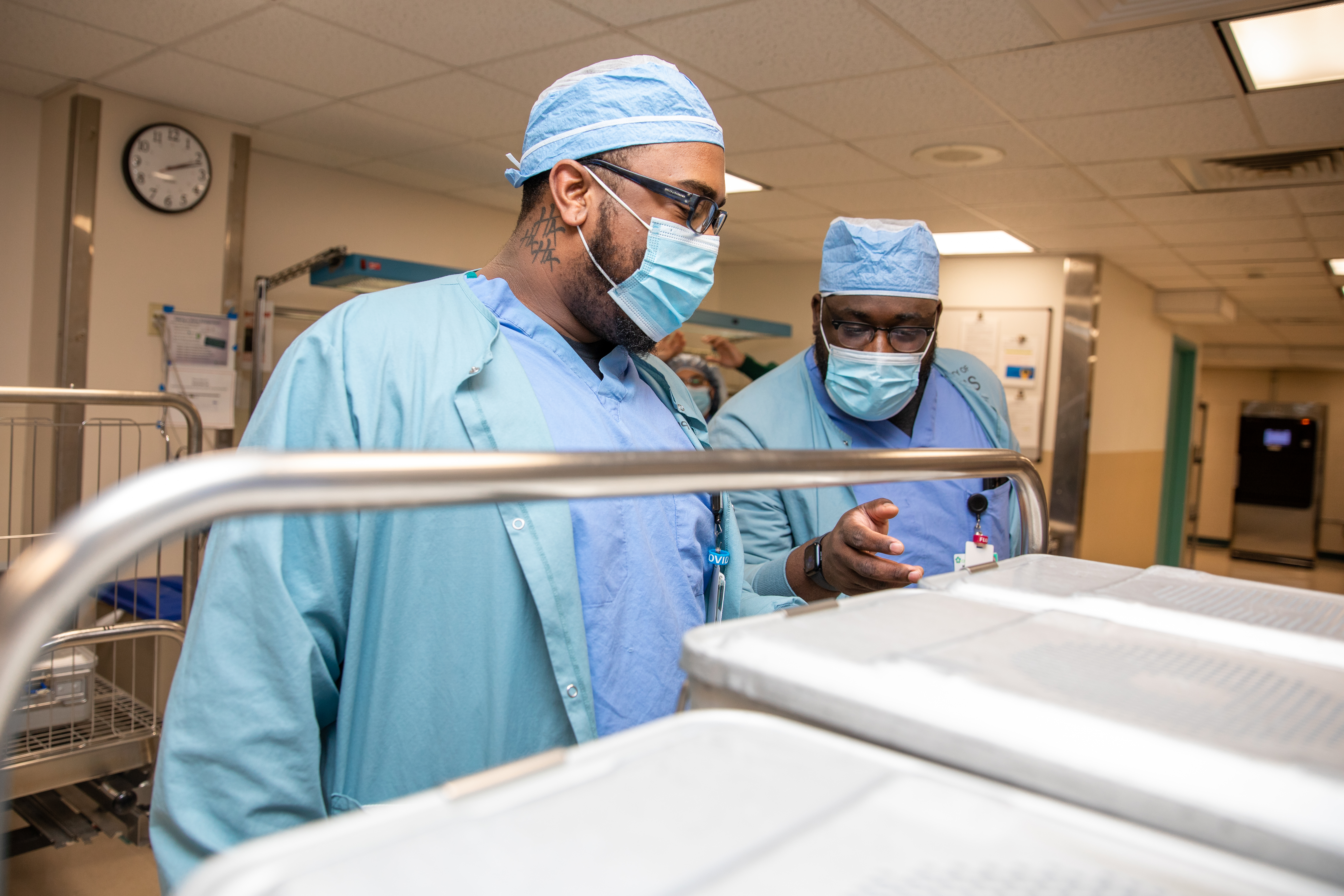
‘No shortcuts’
Each year, the Sterile Processing team assembles more than 32,000 trays and instruments for use in the operating rooms and other departments across ChristianaCare.
It’s work that happens behind the scenes without a lot of accolades. But it’s also lifesaving – literally – preventing dangerous microorganisms and bacteria from remaining on equipment and contaminating a surgical site.
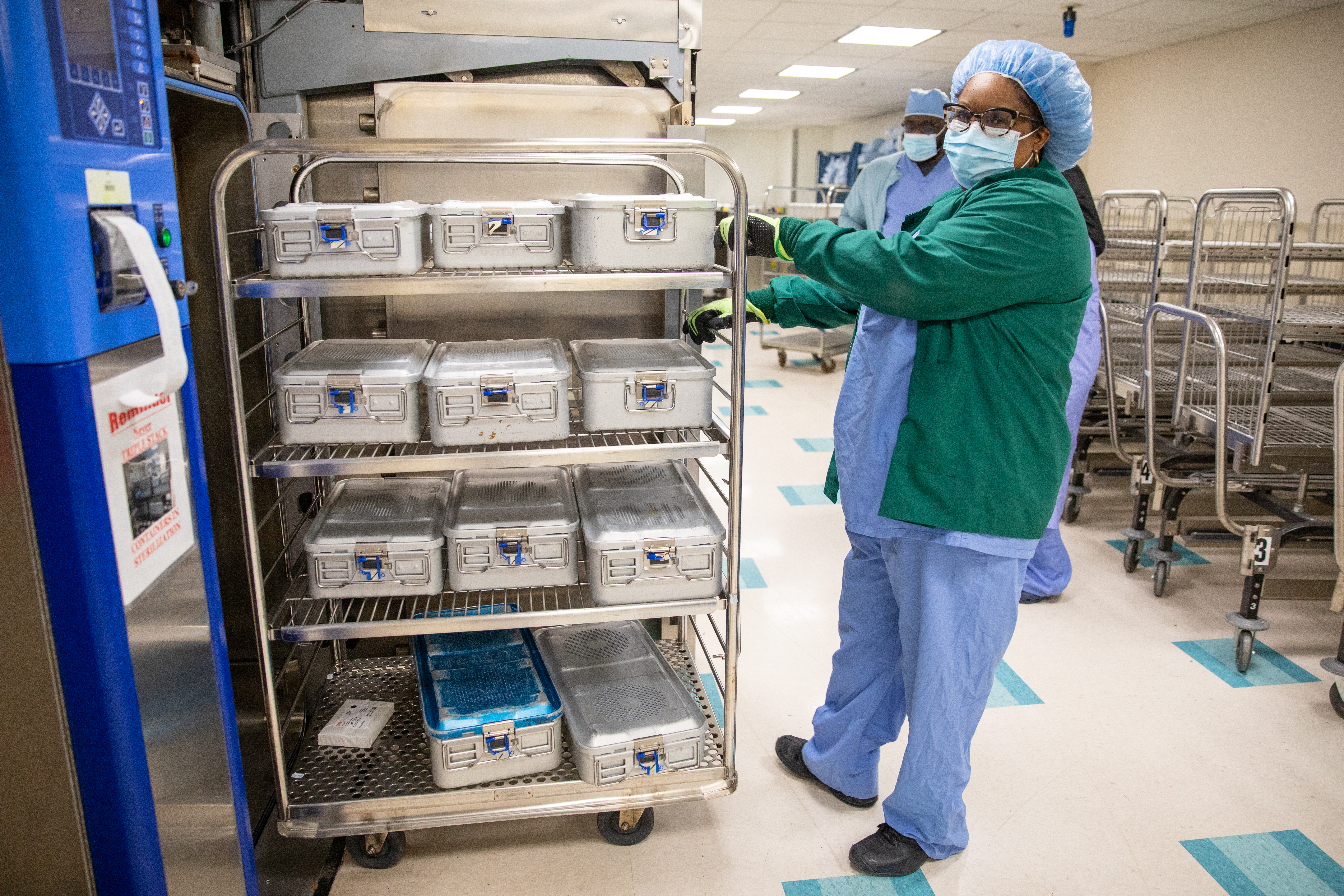
“A lot of people who go to the hospital don’t know that sterile processing even exists,” said Shayna McKnight, CRCST, a sterile processing technician on the Wilmington campus. “We are always thinking of the patients. They are the reminder of why you cannot skip a step and that there are no shortcuts.”
‘The heart of the hospital’
Health care-associated infections are a national concern, with 1.7 million cases among hospitalized patients each year. Surgical site infections account for about 20% of those cases.
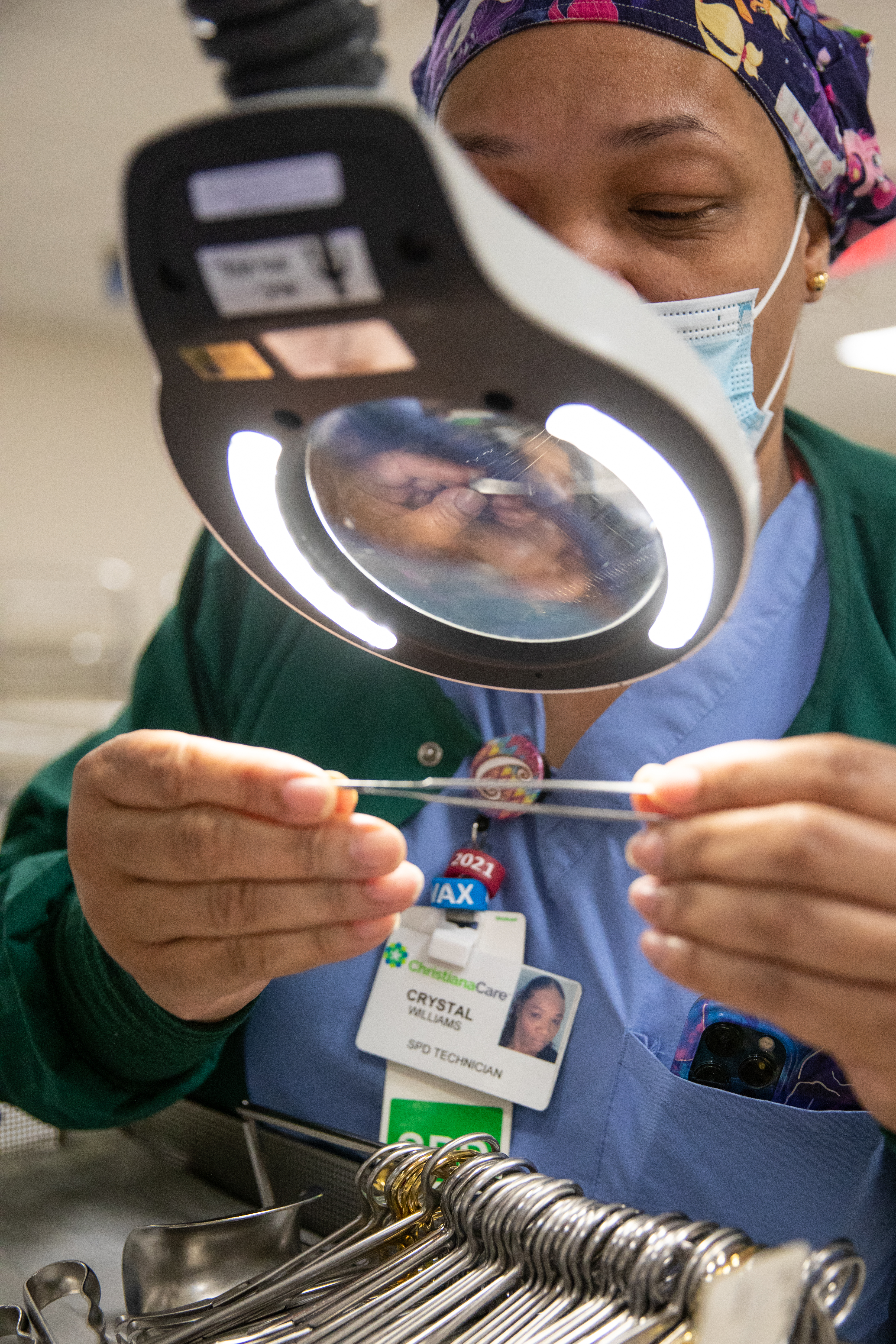
Proper sterilization and processing of surgical instruments is a key component of reducing hospital-acquired infections, but according to the Centers for Medicare and Medicaid Services, the cleaning of medical equipment ranks among the most common compliance-related issues for health care facilities.
“There are a lot of regulatory requirements that we’re required to follow that are associated with the cleaning, assembling and sterilization of the instrumentation,” said Deborah Houghton, CRCST, CIS, CHL, CER, sterile processing educator, who has trained more than 30 sterile processing technicians through ChristianaCare’s internship program.
Making an impact daily
To be a sterile processing technician means not only knowing the difference between two look-alike surgical instruments but also being able to match the right equipment with the right surgery. It’s learning medical terminology, microbiology and anatomy. It’s knowing that the instruments with gold handles are made with tungsten carbide, preferred by some surgeons for their durability.
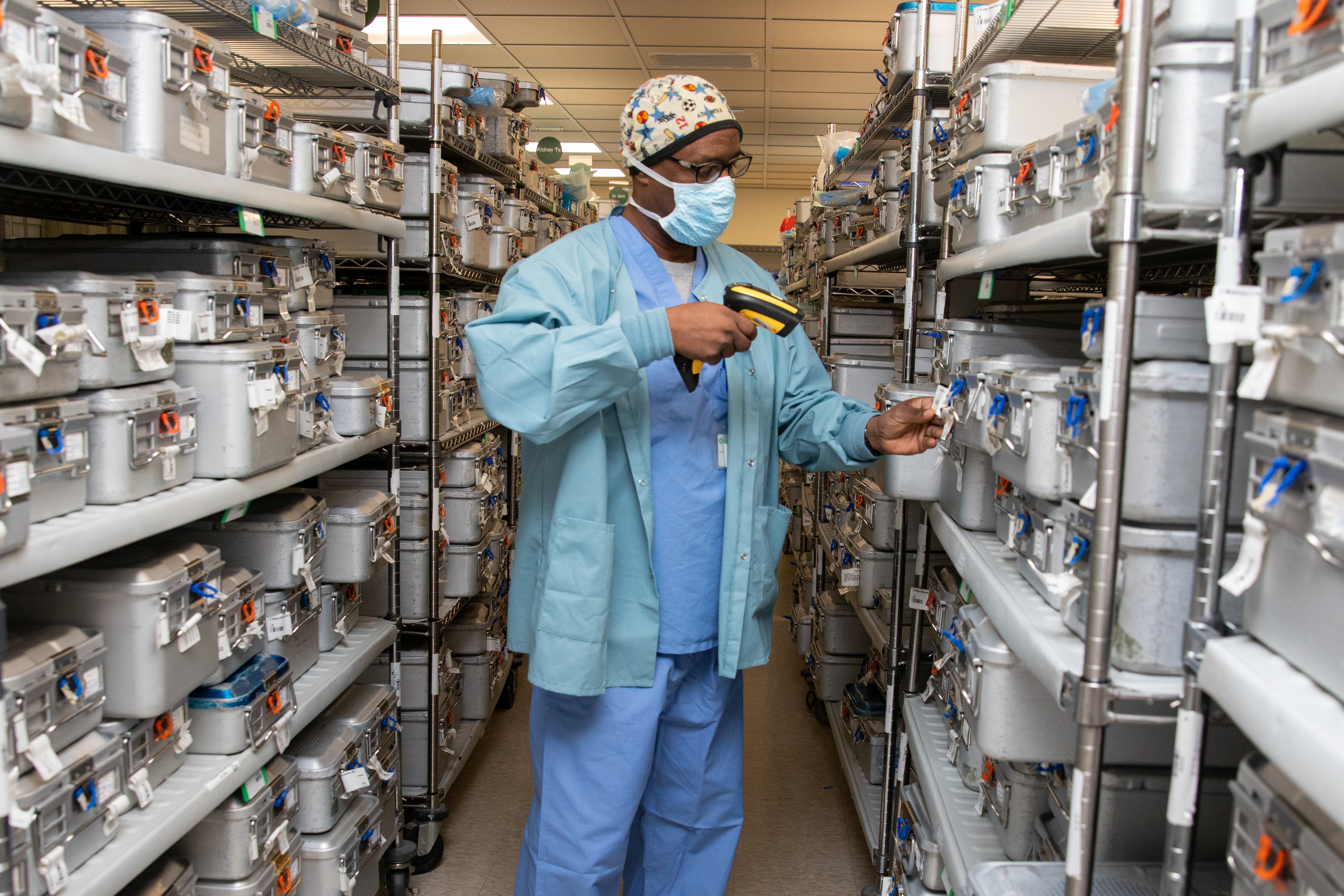
“You’re not learning all this stuff to show off to people. It’s so you can make a real difference,” said sterile processing technician Sheri Hackett, CRCST, who works at Wilmington Hospital. “We have an impact.”
Sterile processing techs may never meet the patients in the OR, but their ability to anticipate the needs of the surgical team is critical to the success of their procedure. It’s more than checking items off a to-do list — for the Sterile Processing team, it’s understanding the importance of their role in reducing patient harm and increasing the safety of the system.
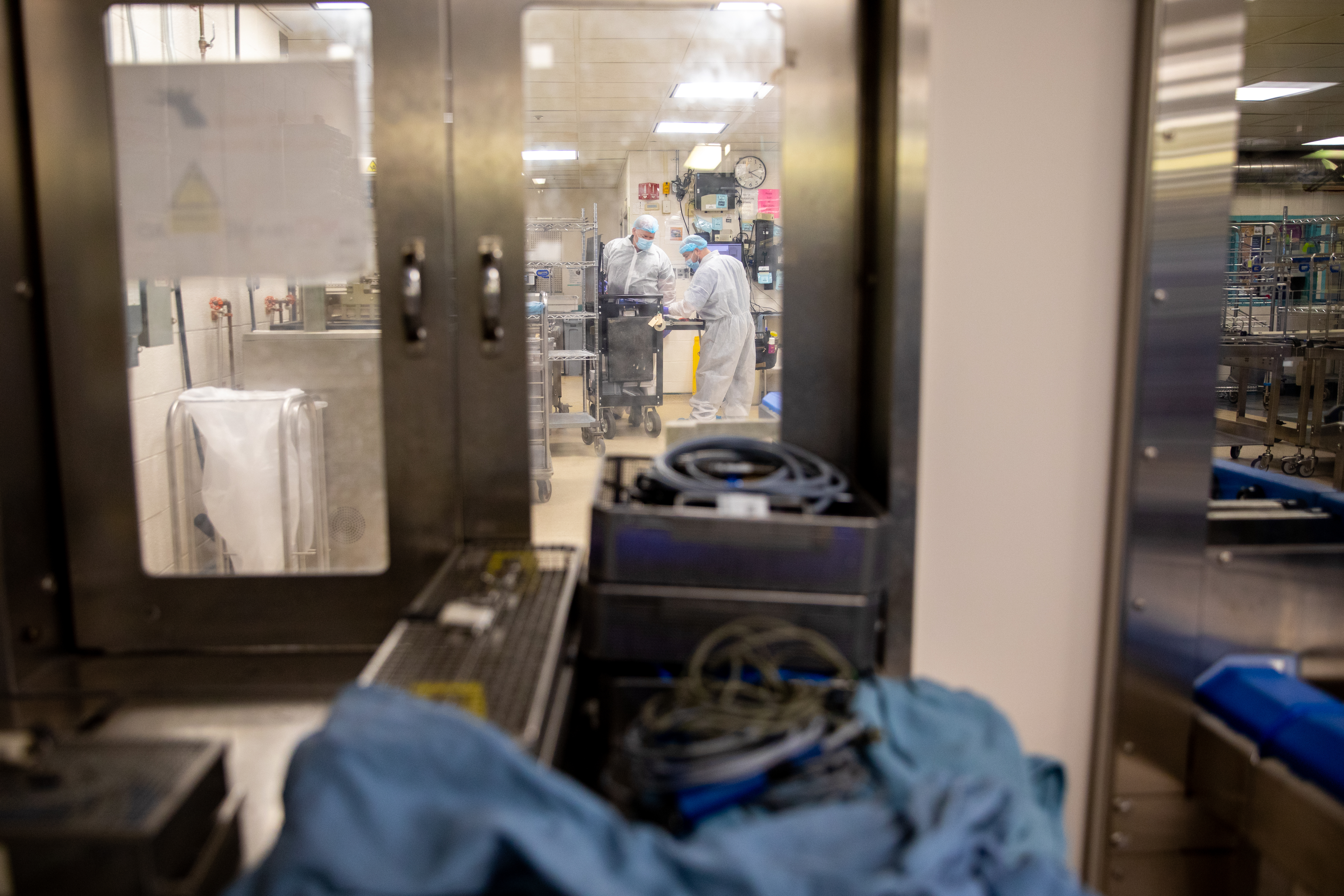
“We each have such a passion for what we do and take great pride in assisting our fellow caregivers to provide the optimal care to our patients,” said Wendy Carbonara, ST, CRCST, CHL, CIR, CER, director of Sterilization Services.
Other caregivers in the system abbreviate the name of the Sterile Processing Department to SPD. For Houghton, those letters mean something else — Safe Patients Daily.
“Without our in-the-trenches technicians, anybody who comes into contact with something contaminated runs the risk of an infection,” she said. “We have an essential role in the delivery of safe patient care. In that way, we are the heart of the hospital.”
